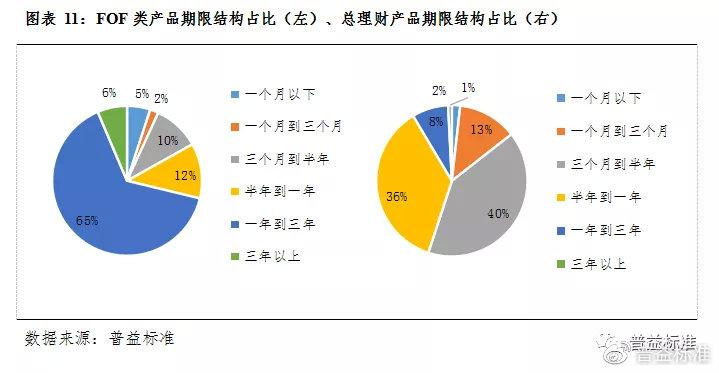在英语写作或口语中,我们经常会遇到一些需要表达转折意义的场景,这时候,“although”这个连词就显得非常关键和实用了,本文将深入解析“although”的基本用法、常见搭配以及它在句子中的灵活运用,帮助大家更好地掌握这一重要的语言工具,使你的英语表达更加地道和流畅。
“Although”的基本含义与用法
“Although”是一个表示让步的连词,用来引导一个从句,说明一种事实,尽管这种事实似乎与主句所述的情况不一致或相反,它所引导的从句通常放在句首,但也可以放在句中或句末,主要取决于语境和表达的需求。
虽然他很累,但他仍然坚持完成了工作。
- *Although* he was tired, he still insisted on finishing the work.
- 他仍然坚持完成了工作,虽然他很累。
- He still insisted on finishing the work, *although* he was tired.
“Although”的高级用法
1、与“yet”或“still”搭配使用
“Although”经常与“yet”或“still”等副词一起使用,以强调转折的程度,这样的组合不仅能够使句子的语气更加强烈,还能使表达更加自然流畅。
- *Although* she studied hard, *yet* she failed the exam.
虽然她学习很努力,但还是考试失败了。
- *Although* it was raining, *still* we decided to go for a walk.
虽然天下着雨,但我们还是决定去散步。
2、与“but”的区别
在某些情况下,人们可能会混淆“although”和“but”的使用,这两个词虽然都用于表示转折,但在句子结构上有明显的不同。“Although”引导的从句通常放在句首,而“but”则用于连接两个并列的分句,且通常放在第二个分句的开头。
- *Although* it was cold, they went out for a walk. (正确)
- It was cold, *but* they went out for a walk. (正确)
注意,当“although”和“but”同时出现在一个句子中时,通常是错误的,因为它们都表示转折,重复使用会导致语义上的冗余。
3、与其他让步连词的比较
除了“although”,英语中还有一些其他的让步连词,如“though”, “even though”, “despite”, “in spite of”等,这些连词在用法上有一些细微的差别,了解这些差别有助于我们在写作和口语中更加准确地选择合适的词语。
- *Although* it was difficult, I managed to complete the task. (正式场合)
虽然任务很难,我还是设法完成了。
- *Though* it was difficult, I managed to complete the task. (非正式场合)

尽管任务很难,我还是设法完成了。
- *Even though* it was difficult, I managed to complete the task. (强调程度)
即使任务很难,我还是设法完成了。
- *Despite* the difficulty, I managed to complete the task. (简洁表达)
尽管有困难,我还是设法完成了。
- *In spite of* the difficulty, I managed to complete the task. (书面语)
尽管有困难,我还是设法完成了。
4、与“as”和“while”搭配使用
“Although”还可以与“as”和“while”搭配使用,形成更加复杂的句子结构,这种搭配可以增加句子的层次感,使表达更加丰富多样。
- *Although* as a beginner, she showed great potential.
虽然是个初学者,但她表现出了很大的潜力。
- *Although* while others were giving up, she continued to strive.
虽然其他人都放弃了,但她仍在努力。
“Although”的常见误用与避免方法
1、不要重复使用转折词
如前所述,“although”和“but”不能在同一句子中重复使用,同样的,也不要在同一句子中同时使用“although”和其他类似的让步连词,如“though”、“even though”等,这样做会使句子显得冗长且逻辑不清。
- 错误:*Although* it was cold, *but* they went out for a walk.
- 正确:*Although* it was cold, they went out for a walk.
2、注意句子的平衡
使用“although”时,要注意句子的平衡性,从句和主句应尽量保持内容上的对等,这样可以使句子更加和谐,如果从句和主句之间的内容差距过大,可能会导致句子结构失衡。
- 不太好的例子:*Although* he was only five years old, he could solve complex mathematical problems.
虽然他只有五岁,但他能解决复杂的数学问题。(从句和主句的内容差距较大,显得不太自然)
- 更好的例子:*Although* he was young, he showed great mathematical talent.
虽然他还年轻,但他表现出极大的数学天赋。(从句和主句的内容更加对等,表达更加自然)
3、避免不必要的使用
并不是所有的转折情况都需要使用“although”,直接陈述事实即可,过度使用会让句子显得累赘。
- 不太好的例子:*Although* the weather was good, we decided to stay indoors.
虽然天气很好,但我们决定待在家里。(这里使用“although”显得有些多余)
- 更好的例子:The weather was good, but we decided to stay indoors.
- 天气很好,但我们决定待在家里。(直接使用“but”更简洁明了)
“Although”的实际应用案例
为了更好地理解“although”的用法,我们可以来看几个实际的应用案例。
1、新闻报道
- *Although* the economy is showing signs of recovery, many people are still struggling to find stable employment.
虽然经济显示出复苏的迹象,但许多人仍然难以找到稳定的工作。
2、学术论文
- *Although* previous studies have suggested a correlation between social media use and mental health issues, this study finds no significant link.
虽然先前的研究表明社交媒体使用与心理健康问题之间存在关联,但本研究未发现显著的联系。
3、个人叙述
- *Although* I had prepared thoroughly for the interview, I felt nervous when I walked into the room.
虽然我为面试做了充分的准备,但当我走进房间时还是感到紧张。
4、小说描写
- *Although* the sun was setting, the sky remained a brilliant shade of orange.
虽然太阳正在落山,但天空仍然是灿烂的橙色。
“Although”作为表示让步的连词,在英语中有着广泛的应用,掌握其基本用法、高级用法以及常见的误用与避免方法,可以帮助我们在写作和口语中更加准确、流畅地表达自己的观点,通过上述的实际应用案例,相信大家对“although”的用法有了更深刻的理解,希望本文能为你的英语学习带来帮助,让你在未来的英语表达中更加得心应手。











